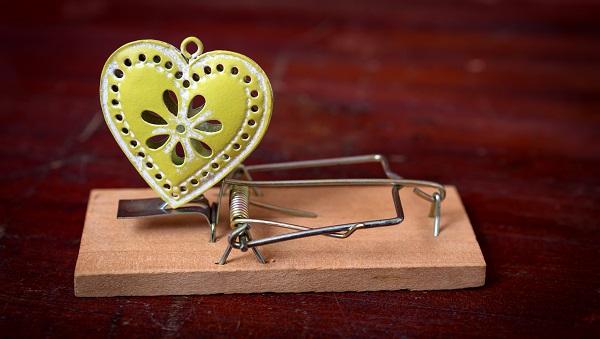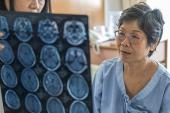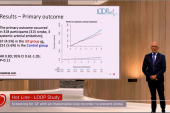Avoiding AF Triggers Doesn’t Improve Quality of Life: I-STOP-AFib
AF triggers are a hot topic for patients: now a unique trial calls into question whether most idiosyncratic triggers are real.

A personalized approach to avoiding triggers of atrial fibrillation (AF), such as alcohol, caffeine, and cold food and/or drinks, does not improve patient-reported quality of life, according to results from the I-STOP-AFib study.
Still, the avoidance of these triggers did appear to provide some benefit, with investigators reporting that those who participated in n-of-1 testing had fewer AF events when compared with a control group.
“We were a little surprised by the discrepancy,” said lead investigator Gregory Marcus, MD (University of California, San Francisco), referring to the reduced AF episodes and Atrial Fibrillation Effect on Quality of Life (AFEQT) results. “There are at least a couple of explanations, though. In favor of the daily A-fib assessment over the AFEQT is the idea that it’s not subject to recall bias, because it’s happening in real time. With the AFEQT, it’s asking about the previous month. On the other hand, in favor of the AFEQT being more relevant, it also factors in severity and how much A-fib is affecting their life. Maybe they only had a minute of A-fib—the daily assessment would tell us they had A-fib but it might be less severe or less important to the patient.”
Presented during the late-breaking science session at the American Heart Association 2021 Scientific Sessions and published simultaneously in JAMA Cardiology, the I-STOP-AFib study is a remote, smartphone application-based clinical trial randomizing patients with paroxysmal AF to n-of-1 trigger testing versus monitoring alone. Symptomatic patients were enrolled in the trial if they had an interest in testing an AF trigger—such as alcohol, caffeine, lack of sleep, exercise, dehydration, cold food/drink, lying on their left side, and large meals, among others—that they could introduce or withhold from their lives.
Interestingly, the study emerged from a brainstorming session of researchers and patients funded by the Patient-Centered Outcomes Research Institute (PCORI).
“Part of our job, on the investigator side, was to ask the patients, ‘What is important to you and that is something you feel has been ignored, either by clinicians or investigators?’” said Marcus. “And they said ‘triggers for our episodes of atrial fibrillation.’ When you go to online forums, people are arguing about triggers, describing their triggers, but nobody has ever really formally studied them. Certainly, in clinic, this is something that patients ask about and talk about all the time.”
Studying triggers for paroxysmal AF, said Marcus, lends itself nicely to an n-of-1 study because AF is a recurrent phenomenon and because the triggers can be idiosyncratic.
For Jim Cheung, MD (Weill Cornell Medicine, New York, NY), who wasn’t involved in the study, the n-of-1 design is unique in that it allows physicians to track the effect of a single trigger on a single patient.
“[I-STOP-AFib] shows us that if you try to correlate the triggers and you tell patients their trigger is more likely to increase the episodes of A-fib, then, in the end, if they follow their own advice, they’ll have less episodes,” Cheung told TCTMD. “Ultimately, though, it also showed that this did not impact quality-of-life measures. In the end, it didn’t make it so that the A-fib impacted them any less.”
Like Marcus, Cheung said it’s possible that the number of AF episodes might not correlate well with quality of life, noting that severity of AF can be more important. “Even severity is individualized,” said Cheung. “We encounter that in clinical practice. Some patients might be in A-fib almost all the time and feel a little tired but that’s the extent of it. Others might have one episode but can feel that very intensely.”
No Effect on Quality of Life
For the study, 251 participants were asked to introduce the AF trigger at some point during a weeklong block and then to avoid or withhold the trigger the following week. They repeated this weeklong exposure/nonexposure block three times for a total of 6 weeks. Following this, they were followed for an additional 4 weeks, a period in which they were asked to implement the appropriate lifestyle changes based on what they gleaned from the n-of-1 testing. The most commonly reported trigger of AF was caffeine (n = 53), which was followed by alcohol (n = 43), reduced sleep (n = 31), and exercise (n = 30). As a control group, 248 participants were simply followed for 10 weeks.
As part of the trial, participants were provided with a mobile ECG recording device (KardiaMobile; AliveCor), and all ECGs flagged as possible AF during the initial n-of-1 testing were also read by a cardiologist and designated as AF or not.
Compared with the baseline results from the AFEQT questionnaire, the 10-week AFEQT scores did not significantly differ between those randomized to n-of-1 testing and the control group. In the 4-week follow-up period after testing, those who participated in the n-of-1 study had significantly fewer daily AF episodes when compared with the control group (adjusted relative risk 0.60; 95% CI 0.43-0.83).
When investigators pooled all of the n-of-1 triggers in a meta-analysis, exposure to alcohol versus nonexposure was associated with a significantly increased risk of self-reported AF (odds ratio 2.15; 95% CI 1.27-3.61). No other trigger exposure, including caffeine, was associated with an increased risk of AF.
Alcohol a ‘Real’ Trigger
To TCTMD, Marcus said the results from the meta-analysis call into question whether such idiosyncratic triggers for AF exist. He suspects it may be a combination of truly causal triggers and availability or immediacy biases where patients simply attribute the AF episode to something they recently did, such as drinking coffee, lying on their side, or having a cold drink.
However, “there’s now a lot of compelling and consistent evidence that alcohol does seem to be a risk factor for A-fib,” said Marcus.
The vast majority of that research is looking more at the chronic effects of alcohol on AF diagnosis, he noted. He also highlighted a recent randomized controlled trial showing that abstinence as opposed to continued drinking reduced the recurrence of AF episodes in patients with paroxysmal or persistent AF. Their research group also showed that acute alcohol consumption was associated with a heightened risk of an AF episode in the preceding 4 hours.
For Cheung, a member of the American College of Cardiology’s Electrophysiology Council, the study provides more evidence that alcohol does appear to be associated with more episodes of AF while caffeine is not a trigger. “Those findings are consistent with existing data that have looked at this question,” said Cheung. “The data on alcohol and A-fib are pretty solid now.” In his clinical practice, he recommends that patients with AF avoid or minimize alcohol as much as possible, particularly if they report it as a trigger.
“The question of how much [alcohol] is OK is a tougher one,” said Cheung. “In my practice, it’s often a negotiation.”
On the other hand, Marcus said there is now a lot of evidence that caffeine isn’t a trigger for AF. He highlighted their analysis of the UK Biobank data showing that people who reported more baseline coffee consumption actually had a lower risk of AF. In the CRAVE study, also led by Marcus and presented at the AHA, drinking coffee was not associated with an increased risk of premature atrial contractions, which are known to initiate AF episodes.
At this point, Marcus thinks that doctors may be telling their patients with arrhythmias, regardless of type, to avoid caffeine. As a result, patients now simply assume caffeine triggers AF. On the other hand, because caffeine was listed as the most common trigger for AF, their study might also suggest patients were testing it out in the n-of-1 study because they don’t think it really induces AF.
“It could be they wanted to show that it doesn’t,” he said. “That’s something that’s a little harder to tease out with these n-of-1 studies. It’s not just to identify a trigger, but to also demonstrate a lack of a causal relationship so you can enjoy a given substance without having to worry about it.”
Michael O’Riordan is the Managing Editor for TCTMD. He completed his undergraduate degrees at Queen’s University in Kingston, ON, and…
Read Full BioSources
Marcus GM, Modrow MF, Schmid C, et al. Individualized studies of triggers of paroxysmal atrial fibrillation: the I-STOP-AFib randomized clinical trial. JAMA Cardiol. 2021;Epub ahead of print.
Disclosures
- Marcus reports personal fees and equity interest from InCarda; personal fees from Johnson & Johnson, and grants from Baylis Medical, Medtronic, the National Institutes of Health, the Patient-Centered Outcomes Research Institute, and the California Tobacco-Related Disease Research Program.





Comments